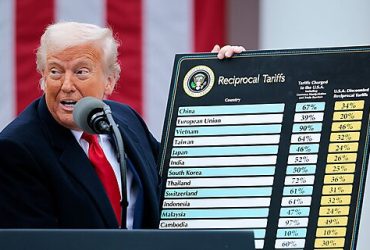Patrick G. Eddington
Today, Trump’s Department of Energy (DoE) announced in the Federal Register a Freedom of Information Act (FOIA) policy change that has no basis in the FOIA statute and is likely challengeable in federal court in light of the 2024 Supreme Court decision in Loper Bright v. Raimondo.
The key part of the DoE announcement is as follows:
Requesters who submitted a FOIA request to DOE HQ at any time prior to October 1, 2024 (FY25), that is still open and is not under active litigation with DOE (or another Federal agency) shall email StillInterestedFOIA@hq.doe.gov to continue processing of the FOIA request. Please note that the foregoing applies to FOIA requests submitted to another agency, which were transferred to DOE and provided with a DOE control number.
The Cato Institute is just one of many FOIA requesters targeted by this policy, as earlier today I received a direct email from DoE requesting that I confirm Cato was still interested in a request filed over 2.5 years ago (I am).
The entire concept of agencies or departments sending “still interested letters” to FOIA requesters dates from 2015, and the policy itself can be found on the Justice Department website. The issue is that the FOIA statute contains no language authorizing the use of such letters. Moreover, in the aforementioned Loper Bright decision, the Supreme Court explicitly stated that,
The Administrative Procedure Act requires courts to exercise their independent judgment in deciding whether an agency has acted within its statutory authority, and courts may not defer to an agency interpretation of the law simply because a statute is ambiguous.
In my view and that of most FOIA requesters in a host of civil society organizations, the lack of explicit authorization in the FOIA statute for such “still interested letters” makes them facially unlawful—particularly in light of the outcome of the Loper Bright case. Even so, the issue has not, as of this date, been litigated in federal court. The Energy Department, and soon likely other federal agencies and departments, will continue efforts to force FOIA requesters to respond to such “still interested letters” unless barred by the courts from doing so.
To try to get some answers to how the DoE can legally justify this action, I posed three questions to the DoE point of contact for the Federal Register announcement, Todd Burns:
The FOIA statute itself does not provide legal authority for federal agencies or departments to issue “still interested” letters to FOIA requesters. Please provide the specific statutory reference and citation authorizing agencies and departments to issue such letters.
Has DoE’s Office of General Counsel issued an opinion on the legality of the requirement issued today via DoE’s Federal Register announcement? If so, can you provide a copy of that opinion?
Is DoE issuing this Federal Register announcement at the direction of or with the concurrence of the Justice Department’s Office of Information Policy (OIP), and if so, which DoJ official issued the direction or the concurrence?
The DoE FOIA office subsequently told me to reach out to the DoE press office, which failed to respond to my questions by my 3:30 p.m. deadline.
Agency and department FOIA officials constantly complain about their large and growing FOIA case backlogs, never acknowledging that their invocation of FOIA exemptions is entirely discretionary—they could clear their backlogs quickly by simply releasing requested records without needless layers of review and redactions.
Moreover, they have no legal basis to close valid, pending FOIA requests absent 1) a final determination letter to the requester either providing responsive documents, 2) withholding documents on the basis of one of nine statutory exemptions, or 3) reporting that no responsive records were located.
Congress and the courts should not allow them to actively subvert the FOIA statute by letting agencies and departments use an extra-legal administrative measure to close long-standing FOIA cases that the government itself has failed to respond to, as the law requires.









